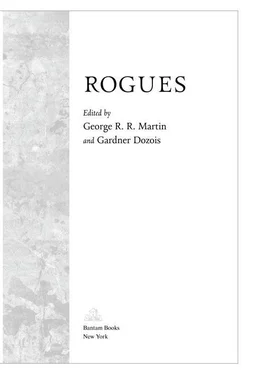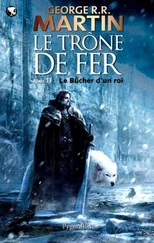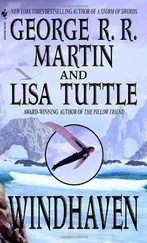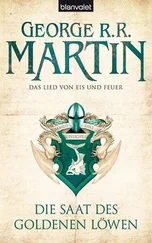Kurtis took the packet. Of course he did. He was an idiot, but not so much of an idiot as that. He snatched up the packet and ran. Of course he ran. When didn’t he?
He tore down the alleyway, heart in mouth, jumped a burst barrel, caught his foot and went sprawling, almost impaled himself on his own drawn sword, slithered on his face through a slick of rubbish, scooping a mouthful of something faintly sweet and staggering up, spitting and cursing, snatching a scared glance over his shoulder—
There was no sign of pursuit. Only the mist, the endless mist, whipping and curling like a thing alive.
He slipped the packet, now somewhat slimy, into his ragged cloak and limped on, clutching at his bruised buttock and still struggling to spit that rotten-sweet taste from his mouth. Not that it was any worse than his breakfast had been. Better, if anything. You know a man by his breakfast, his fencing master always used to tell him.
He pulled up his damp hood with its faint smell of onions and despair, plucked the purse from his sword, and slid blade back into sheath as he slipped from the alley and insinuated himself among the crowds, that faint snap of hilt meeting clasp bringing back so many memories. Of training and tournaments, of bright futures and the adulation of the crowds. Fencing, my boy, that’s the way to advance! Such knowledgeable audiences in Styria, they love their swordsmen there, you’ll make a fortune! Better times, when he had not dressed in rags, or been thankful for the butcher’s leftovers, or robbed people for a living. He grimaced. Robbed women. If you could call it a living. He stole another furtive glance over his shoulder. Could he have killed her? His skin prickled with horror. Just a scratch. Just a scratch, surely? But he had seen blood. Please, let it have been a scratch! He rubbed his face as though he could rub the memory away, but it was stuck fast. One by one, things he had never imagined, then told himself he would never do, then that he would never do again, had become his daily routine.
He checked once more that he wasn’t followed, then slipped from the street and across the rotting courtyard, the faded faces of yesterday’s heroes peering down at him from the newsbills. Up the piss-smelling stairway and around the dead plant. Out with his key, and he wrestled with the sticky lock.
“Damn it, fuck it, shit it—Gah!” The door came suddenly open and he blundered into the room, nearly fell again, turned and pushed it shut, and stood a moment in the smelly darkness, breathing hard.
Who would now believe he’d once fenced with the king? He’d lost. Of course he had. Lost everything, hadn’t he? He’d lost two touches to nothing and been personally insulted while he lay in the dust but, still, he’d measured steels with His August Majesty. This very steel, he realized, as he set it against the wall beside the door. Notched, and tarnished, and even slightly bent toward the tip. The last twenty years had been almost as unkind to his sword as they had been to him. But perhaps today marked the turn in his fortunes.
He whipped his cloak off and tossed it into a corner, took out the packet to unwrap it and see what he had come by. He fumbled with the lamp in the darkness and finally produced some light, almost wincing as his miserable rooms came into view. The cracked glazing, the blistering plaster speckled with damp, the burst mattress spilling foul straw where he slept, the few sticks of warped furniture—
There was a man sitting in the only chair, at the only table. A big man in a big coat, skull shaved to greying stubble. He took a slow breath through his blunt nose and let a pair of dice tumble from his fist and across the stained tabletop.
“Six and two,” he said. “Eight.”
“Who the hell are you?” Kurtis’ voice was squeaky with shock.
“The Quarryman sent me.” He let the dice roll again. “Six and five.”
“Does that mean I lose?” Kurtis glanced over toward his sword, trying and failing to seem nonchalant, wondering how fast he could get to it, draw it, strike—
“You lost already,” said the big man, gently collecting the dice with the side of his hand. He finally looked up. His eyes were flat as those of a dead fish. Like the fishes on the stalls at the market. Dead and dark and sadly glistening. “Do you want to know what happens if you go for that sword?”
Kurtis wasn’t a brave man. He never had been. It had taken all his courage to work up to surprising someone else; being surprised himself had knocked the fight right out of him. “No,” he muttered, his shoulders sagging.
“Toss me that package,” said the big man, and Kurtis did so. “And the purse.”
It was as if all resistance had drained away. Kurtis had not the strength to attempt a ruse. He scarcely had the strength to stand. He tossed the stolen purse onto the table, and the big man worked it open with his fingertips and peered inside.
Kurtis gave a helpless, floppy motion of his hands. “I have nothing else worth taking.”
“I know,” the man said, as he stood. “I have checked.” He stepped around the table and Kurtis cringed away, steadying himself against his cupboard. A cupboard containing nothing but cobwebs, as it went.
“Is the debt paid?” he asked in a very small voice.
“Do you think the debt is paid?”
They stood looking at one another. Kurtis swallowed. “When will the debt be paid?”
The big man shrugged his shoulders, which were almost one with his head. “When do you think the debt will be paid?”
Kurtis swallowed again, and he found his lip was trembling. “When the Quarryman says so?”
The big man raised one heavy brow a fraction, the hairless sliver of a scar through it. “Have you any questions … to which you do not know the answers?”
Kurtis dropped to his knees, his hands clasped, the big man’s face faintly swimming through the tears in his aching eyes. He did not care about the shame of it. The Quarryman had taken the last of his pride many visits before. “Just leave me something,” he whispered. “Just … something.”
The man stared back at him with his dead fish eyes. “Why?”
Friendly took the sword too, but there was nothing else of value. “I will come back next week,” he said.
It had not been meant as a threat, merely a statement of fact, and an obvious one at that, since it had always been the arrangement, but Kurtis dan Broya’s head slowly dropped, and he began to shudder with sobs.
Friendly considered whether to try and comfort him, but decided not to. He was often misinterpreted.
“You should, perhaps, not have borrowed the money.” Then he left.
It always surprised him that people did not do the sums when they took a loan. Proportions, and time, and the action of interest, it was not so very difficult to fathom. But perhaps they were prone always to overestimate their income, to poison themselves by looking on the bright side. Happy chances would occur, and things would improve, and everything would turn out well, because they were special. Friendly had no illusions. He knew he was but one unexceptional cog in the elaborate workings of life. To him, facts were facts.
He walked, counting off the paces to the Quarryman’s place. One hundred and five, one hundred and four, one hundred and three …
Strange how small the city was when you measured it out. All those people, and all their desires, and scores, and debts, packed into this narrow stretch of reclaimed swamp. By Friendly’s reckoning, the swamp was well on the way to taking large sections of it back. He wondered if the world would be better when it did.
… seventy-six, seventy-five, seventy-four …
Friendly had picked up a shadow. Pickpocket, maybe. He took a careless look at a stall by the way and caught her out of the corner of his eye. A girl with dark hair gathered into a cap and a jacket too big for her. Hardly more than a child. Friendly took a few steps down a narrow snicket and turned, blocking the way, pushing back his coat to show the grips of four of his six weapons. His shadow rounded the corner, and he looked at her. Just looked. She first froze, then swallowed, then turned one way, then the other, then backed off and lost herself in the crowds. So that was the end of that episode.
Читать дальше












